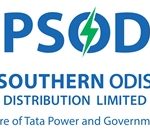Mumbai/ Delhi: ArcelorMittal Nippon Steel India (AM/NS India) has published its Sustainability Report for FY2024-2025, which has set out the measurable progress it is making on its commitment to decarbonisation, circularity, and communities’ empowerment. The report also underscores that AM/NS India’s efforts to cut CO2 emissions and embrace circularity are aligned with global standards such as Global Reporting Initiative (GRI) 2021, European Sustainability Reporting Standards (ESRS), Integrated Reporting (IR) & Business Responsibility and Sustainability Reporting (BRSR).
Dilip Oommen, Chief Executive Officer, AM/NS India, said: “Sustainability is integral to our business strategy, promoting innovation, contributing to national climate action goals, and ensuring the well-being and safety of our employees, and all other stakeholders. The past financial year has marked a turning point in our sustainability journey as we made steady progress on our strategic intent to continue producing high-quality and low- carbon emissions steel, more responsibly. Under the theme ‘From Green Promise to Green Action’, the report detalils measurable advancements we made in sustainability across our operations, value chain, and communities. Operational Milestones:Low-carbon emissions steelmaking progress: CO2 emissions intensity has been reduced by 2.2% from 2021 baseline. “
Since 2015, AMNS India reduced more than one-third CO2 emissions intensity. The company is currently recognised as one of India’s lowest carbon- emiting integrated steel producers (14% lower than the national average). Renewable energy integration: 26% of the organisation’s total electricity consumption has been sourced from renewable energy. The notable boost in renewable energy was realised when the company flagship plant in Hazira, Gujarat, started receiving clean energy from about a 1-GW hybrid renewable energy project in Andhra Pradesh. The $0.7 bilion proiect. developed by AM Green Energy (part of ArcelorMittal, one of our parent companies), represents the company’s commitment to decarbonisation.
Water resource management: Zero liquid discharge has been achieved across the company operations in India; 350 m illion litres of rainwater has been harvested.
Circularity: Nearly 4.1 lakh tonnes of steel scrap has been utilised in the financial year, resulting in 5.7% ‘of scrap mix in steel production. A scrap processing plant in Khopoli, Maharashtra, accelerated this circularity in its supply chain, bringing AMNS India closer to its 10 % scrap mix target by 2030.
The report details how the company is pursuing green hydrogen and carbon capture to pave the way for next-generation steelmaking.






